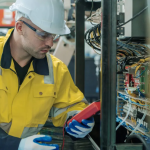As we collectively grapple with the urgent need to transition to a sustainable future, there’s growing recognition of the role communities play in the development of renewable energy projects. In the UK, locally owned and supported renewable energy projects are blossoming, powered by wind, solar, and other renewable sources.
This article aims to unpack the best practices for building community support for renewable energy projects in the UK, examining the benefits for local communities and challenges to be overcome. By engaging in this discussion, you will gain insight into renewable energy development, business models, community ownership, and the power of community support.
Also to discover : How to Navigate UK Health and Safety Regulations for Workplace Wearables?
Building Support Through Community Ownership
Community ownership is a key element in the development of renewable energy projects. When local communities have a stake in the projects, they feel a sense of empowerment and investment in their success.
Community ownership can take many forms, from direct ownership of renewable energy installations to profit-sharing agreements. In direct ownership models, communities own and operate renewable energy facilities, often through a community-based organisation or cooperative. In profit-sharing models, communities receive a portion of the profits generated by renewable energy projects.
Also read : What Are the Best Strategies for UK Businesses to Manage Foreign Exchange Risk?
One of the main benefits of community ownership is the potential for community reinvestment. Profits generated can be channelled back into the community, supporting local development and initiatives.
Community ownership also fosters local support, as residents see direct benefits from the project. This can lead to more successful project implementation, as the local community is more likely to support a project in which they have a direct stake.
Harnessing the Power of Local Businesses
Local businesses are another essential player in building strong support for community renewable energy projects. They can provide vital resources, skills, and support to help realise these initiatives.
Local businesses can directly support renewable energy projects by procuring renewable energy for their operations. This not only helps local businesses reduce their carbon footprints, but it also provides a consistent and reliable source of income for the renewable energy project.
Furthermore, businesses can play a crucial role in facilitating community engagement. For example, businesses can host community meetings or provide resources for public education about the benefits of renewable energy.
The involvement of local businesses also helps to foster a sense of community pride and ownership over the projects. As such, they play a vital role in garnering support and driving the successful implementation of renewable energy projects.
The Role of Project Development and Management
Effective project development and management are critical in building community support for renewable energy projects. This involves everything from initial project planning and design to ongoing operation and maintenance.
One crucial aspect of project development is ensuring transparency throughout the process. Keeping the community informed and involved in the project’s progression helps to build trust and maintain support. This can be achieved through regular community meetings, newsletters, or a dedicated project website.
Additionally, projects should strive to be inclusive and representative of the community they serve. This means ensuring that all segments of the community have a voice in the project planning and decision-making process.
Overcoming Challenges with Sustainable Transitions
Transitioning to sustainable energy sources like wind and solar is not without its challenges. These can range from technical challenges, such as integrating renewable energy into existing power systems, to social challenges like overcoming resistance to change.
One of the best ways to overcome these challenges is through public education and engagement. Providing clear, accessible information about the benefits of renewable energy can help to foster greater understanding and acceptance.
It’s also important to directly address any concerns or objections that community members may have. This could involve bringing in experts to answer questions, conducting site visits to existing renewable energy installations, or even creating opportunities for community members to try out renewable technologies firsthand.
Leveraging Benefits for Local Communities
Renewable energy projects offer a host of benefits for local communities. These range from the obvious – cleaner air, reduced greenhouse gas emissions, and lower energy bills – to less tangible benefits like increased community cohesion and pride.
To harness these benefits effectively, it’s important to clearly communicate them to the community. This could involve developing case studies of successful community renewable projects, hosting public presentations, or creating engaging and informative content for local media outlets.
Engaging young people is another effective strategy, as they will be the ones most affected by our energy choices in the future. Schools and youth groups can be great partners in spreading the word about the benefits of renewable energy and encouraging their families and wider communities to support local projects.
Community Involvement in Decision-Making
Involving the community in the decision-making process is a fundamental best practice for securing support for renewable energy projects. This involvement ranges from the initial planning stages through to the final project implementation. Communities that participate at every stage not only feel more invested in the project, but they also become advocates for it.
A crucial aspect of community involvement in decision-making is creating a platform for open dialogue. Regular community meetings, social media platforms, and transparent communication channels can all serve as platforms for information sharing and discussion. It’s essential to encourage community members to express their views and concerns about the project. This open dialogue can help build trust and strengthen relationships within the community.
Another critical aspect is ensuring that the decision-making process is inclusive and representative. This means involving diverse segments of the community, including minority groups, young people, and the elderly. This diversity can ensure that the project caters to the needs and aspirations of the entire community, thereby promoting wider acceptance and support.
Moreover, community involvement in decision-making can also foster local skills and capacity. Community members can learn about renewable energy technologies, project management, and the intricacies of the energy sector. This capacity building is crucial for the long-term sustainability of renewable energy projects and can drive further energy transitions in the community.
The Role of the Scottish Government in Supporting Community Energy Projects
The Scottish Government has been a leader in promoting community energy projects. Recognising the potential of these projects to drive energy transition, reduce energy consumption, and foster community cohesion, it has implemented several supportive policies and initiatives.
One key initiative is the Community and Renewable Energy Scheme (CARES), which provides financial support and expert guidance to communities embarking on renewable energy projects. CARES aims to increase the number of locally owned and operated renewable energy projects, promoting local energy security and resilience.
The Scottish Government also recognises the role of local authorities in supporting community energy. It encourages them to play an active role in project planning and decision-making, and to integrate renewable energy into local development plans.
Furthermore, the Scottish Government has set ambitious targets for community energy. It aims for 1GW of community and locally owned renewable energy by 2020, and 2GW by 2025. These targets, backed by supportive policies and funding, send a clear signal of the government’s commitment to community energy and can encourage more communities to engage in renewable energy projects.
Conclusion
Building community support for renewable energy projects is vital for the continued growth and success of the UK’s renewable energy sector. Community ownership, the involvement of local businesses, effective project management, education and engagement, and supportive government policies all play a crucial role in garnering this support.
Renewable energy projects offer a wealth of benefits for local communities, from environmental benefits to economic ones. By emphasising these benefits and involving communities in every stage of project development, we can foster a sense of ownership and pride in these projects. This can lead to widespread support and a positive energy transition in the UK.
Despite numerous challenges associated with transitioning to renewable energy, they can be overcome with dedication, creativity, and community action. The future of UK energy lies not just in the hands of government and industry, but in the collective power of its communities. By harnessing this power, we can create a cleaner, more sustainable, and resilient energy system for the UK.











